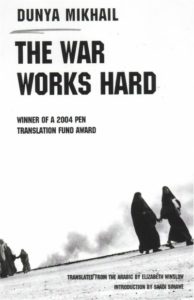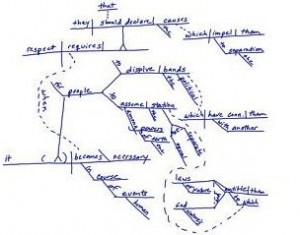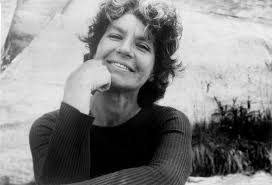 I have a system for New Year’s resolutions that works well for me: Aim small and succeed. I’ve discussed this before. But to update the list, I’ve since added: drive courteously (three years ago), no movie theater popcorn (two years ago), and better socks (last year). I’m still working on last year’s resolution, slowly replacing my ragtag collection with better socks, so I don’t need a new resolution this year.
I have a system for New Year’s resolutions that works well for me: Aim small and succeed. I’ve discussed this before. But to update the list, I’ve since added: drive courteously (three years ago), no movie theater popcorn (two years ago), and better socks (last year). I’m still working on last year’s resolution, slowly replacing my ragtag collection with better socks, so I don’t need a new resolution this year.
The point is that these resolutions seem to last, not just for a year, but integrated into my life–unlike the grand, doomed resolutions I used to make. Of course, I have many projects and activities planned for 2018, both personal and political, but these are not resolutions, but practice.
I am also pleased that most Mondays for over six years, I’ve found and posted a poem I like. I almost always post poems that are contemporary, or at least 20th century. But last week Larry received a packet of broadsides that included one of my favorite poems by John Donne. So here is your New Year’s vitamin. It is the opening of the second stanza that I love most:
The Good-Morrow
I wonder, by my troth, what thou and I
Did, till we loved? Were we not weaned till then?
But sucked on country pleasures, childishly?
Or snorted we in the Seven Sleepers’ den?
’Twas so; but this, all pleasures fancies be.
If ever any beauty I did see,
Which I desired, and got, ’twas but a dream of thee.
And now good-morrow to our waking souls,
Which watch not one another out of fear;
For love, all love of other sights controls,
And makes one little room an everywhere.
Continue reading “Of resolutions and poetry” →
 Your Monday poem on Wednesday, by Jane Hirshfield, Worth the wait, I hope.
Your Monday poem on Wednesday, by Jane Hirshfield, Worth the wait, I hope. This poem, by Dunya Mikhail seems appropriate.
This poem, by Dunya Mikhail seems appropriate. I read about Bette Howland and her memoir/novel Blue in Chicago in the NY Times obituaries last month. According to the obituary she was a a protege (and perhaps lover) of Saul Bellow and had a troubled life.
I read about Bette Howland and her memoir/novel Blue in Chicago in the NY Times obituaries last month. According to the obituary she was a a protege (and perhaps lover) of Saul Bellow and had a troubled life.
 There is nothing to say about this poem–just buy the book.
There is nothing to say about this poem–just buy the book. I have a system for New Year’s resolutions that works well for me: Aim small and succeed. I’ve discussed this
I have a system for New Year’s resolutions that works well for me: Aim small and succeed. I’ve discussed this